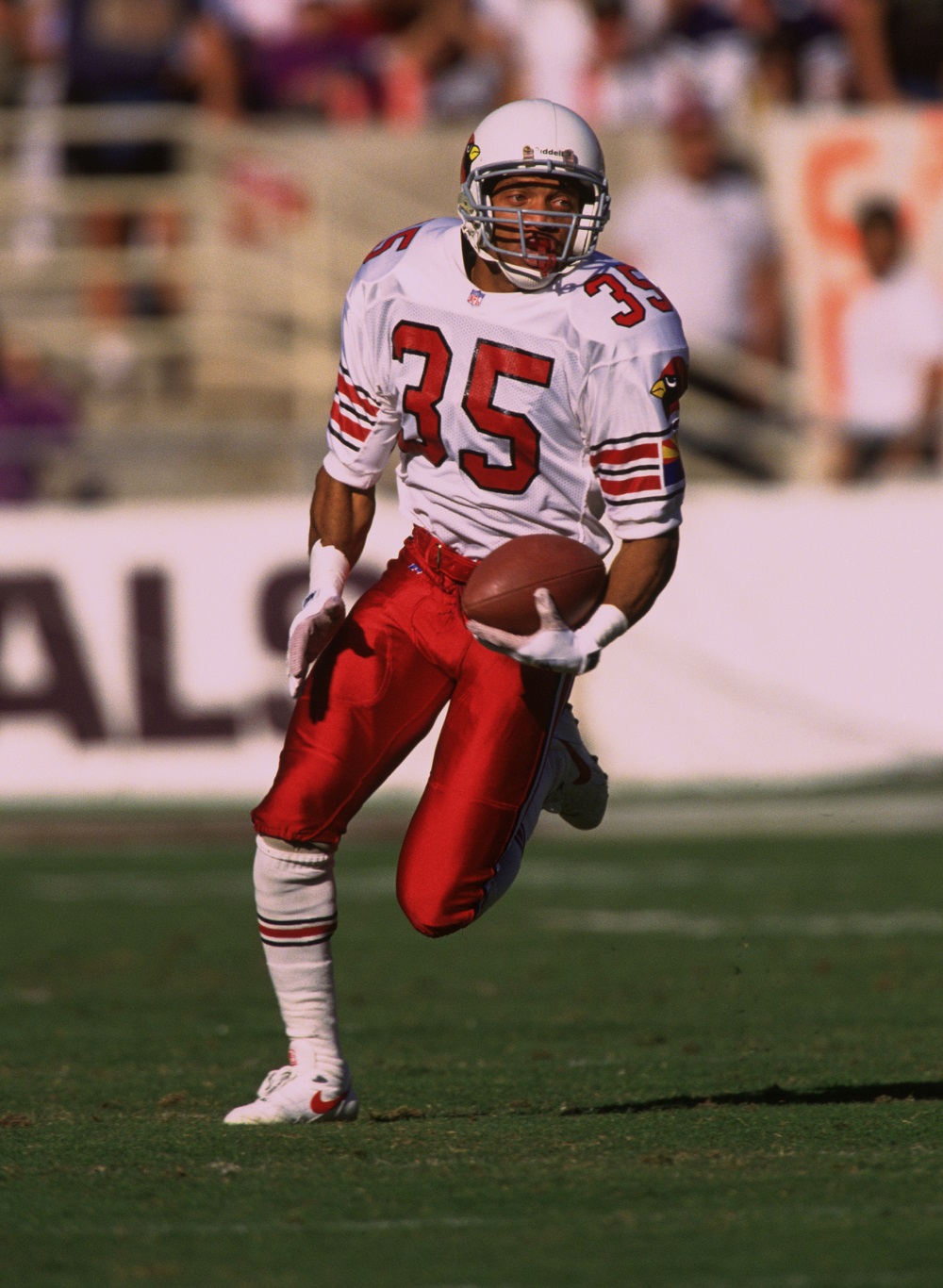By Lisa Zimmerman, Player Engagement Insider
When Aeneas Williams, who played cornerback and safety in the NFL for 14 years, was inducted into the Pro Football Hall of Fame in 2014, it was the culmination of a journey he never foresaw, and one he wouldn’t change a step of. The first step was the decision by the New Orleans native to attend Southern University, one of the historically black colleges and universities.
Williams’ father had been the first in the family to attend college and he attended Southern, located in Baton Rouge. Older brother Achilles was already a student there, and Williams liked the idea of staying close to home, so while he was also pursued by Dartmouth of the Ivy League, he chose Southern. At the time, a football scholarship wasn’t even on the table from Southern. In fact, Williams didn’t join the team until his junior year when he earned a walk-on spot.
From the moment he arrived at Southern in the fall of 1986, Williams knew he has made the right choice.
“It was a culture in which there was increasing concern that it was important that you were not only just there as a student, but that you developed as a person,” Williams said. “And, not just as an African-American, but you have to be your best. This was felt through faculty, through the people who were working at the university. It was extremely important that we developed as individuals.”
For his first two years, Williams concentrated on academics and availed himself of the resources Southern offered that he might not have found elsewhere. Although he grew up attending what he called “decent” public schools in New Orleans, there were some holes in his early education that he was able to fill once he got to college, and in a way that was encouraging, not demeaning.
“We were not properly prepared to enter a university [from high school],” Williams said. “Southern had a junior division that was geared toward remedial classes. Those classes that we needed to get up to par to be able to overcome the deficits that we incurred from being in schools that did not ensure that we had a standard of education to prepare us for the next level. Having to take those remedial classes and never feeling shame, and that if I too had been given the same information as others I would have excelled as well.”
At Southern, Williams excelled academically, and once he joined the football team, athletically as well. In his first year, he tied the NCAA Division I-AA record for most interceptions. His success at Southern led to a third-round selection by the Arizona (then Phoenix) Cardinals in the 1991 NFL Draft. Williams went on to play 10 years in Arizona and finished his career with the St. Louis Rams. He earned a total of eight Pro Bowl nominations, was named Bart Starr Man of the Year in 1999, and was inducted into the Cardinals Ring of Honor. He is also a member of the St. Louis Sports Hall of Fame and the Black College Football Hall of Fame.

Williams credits both the early example of his father, who went on to a career as a laboratory supervisor for Dow Chemical, as well as the preparation Southern gave him, as being the foundations for his success, which in his post-NFL years includes being the founding pastor at the Spirit Church in St. Louis.
“What I learned at Southern has prepared me to be successful in any environment, on and off the field,” he said. “You had to leverage the resources and realize that this school is not a second-tier school. It was just about preparing to be the very best you could be at whatever you do. These schools, while predominately African-American, they will prepare any student willing to compete at an exceptional level. People think these are sub-par to other institutions and they are not. That’s the message I want to remind people.”
Williams acknowledges that there are some challenges at historically black colleges and universities that are not experienced at other schools, but which also offer life lessons.
“Sometimes there’s an excessive wait for book orders,” he said. “And some of the frustrating nuances that some of the bigger institutions have figured out. It teaches you how to be patient in life. You’re going to be in environments that aren’t perfect. Sometimes you’re going to be working for a person who may not be the best person to work for, but you’re not going to take yourself out of that environment. It all plays a part in developing a well-rounded person.”
While he has seen improvement and progress in racial interactions, Williams feels strongly that historically black colleges and universities still have an important role to play.
“Those institutions are still needed today,” he said. “They still serve many purposes. People are becoming more inclusive, but there still is a need for an environment that helps that young African-American student develop esteem and belief in themselves.”
Lisa Zimmerman is a long-time NFL writer and reporter. She was the Jets correspondent for CBSSports.com, SportsNet New York’s TheJetsBlog.com and Sirius NFL Radio. She has also written for NFL.com.